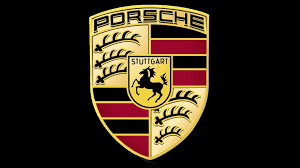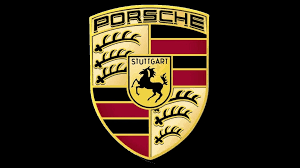
Porsche AG shares rose sharply on Thursday after Volkswagen defied volatile markets by listing the sports car manufacturer at a valuation of 75 billion euros ($72 billion) in Germany's second-largest market debut.
Volkswagen priced Porsche AG shares at the high end of the indicated range, raising 19.5 billion euros from the IPO to fund the group's electrification drive. By 1035 GMT, Porsche AG stock was up 3 per cent from its IPO price of 82.50 euros.
This increased Porsche AG's valuation to 77.4 billion euros, close to Volkswagen's overall market capitalisation of approximately 80.1 billion euros, and ahead of competitors such as Ferrari. It is the largest listing in Germany since Deutsche Telekom in 1996.
In an interview, Oliver Blume dismissed concerns about his dual role as CEO of Porsche AG and Volkswagen, saying the decision was made "very consciously."
Porsche AG's strong start came despite broadly weaker stock markets in the aftermath of Germany's red-hot inflation data. Volkswagen and Porsche SE, which owns a blocking minority in Porsche AG, saw their shares fall 4.6 per cent and 8 per cent, respectively, as investors switched over.
"This is not exactly a dream environment for an IPO today," said QC Partners wealth manager Thomas Altmann.
Porsche's IPO comes at a time when European stock exchanges are having their worst year since 2009, with investors worried about a global recession against a backdrop of soaring inflation, rising interest rates, and the Ukraine war.
According to one banker involved in the transaction, Porsche is a one-time icebreaker for the IPO market, which will soon freeze over again.
According to Refinitiv data, companies in the region raised $44 billion in equity capital markets transactions through September 27, with only $4.5 billion raised through initial public offerings.
"There's a lot to like about the company, with its aggressive electrification plans, expected strong cashflow generation and premium brand positioning in the market," Chi Chan, Portfolio Manager European Equities at Federated Hermes Limited, told Reuters.
"However, it is coming to market at a time of unprecedented turmoil and consumer confidence is falling."
Despite the euphoria surrounding the Porsche IPO, further listings will be difficult, according to Malte Hopp, Citi's head of Equity Capital Markets (ECM) for Germany and Austria.
As he hugged colleagues and rang the bell on a packed Frankfurt stock exchange trading floor, Porsche AG Chief Executive Blume, whose dual role as the new head of Volkswagen has drawn criticism from some investors, hailed the listing as a "historic moment."
Volkswagen has stated that the market's volatility is precisely why fund managers are desperate for a stable and profitable company like Porsche AG in which to invest.
"Porsche was and is the pearl in the Volkswagen Group," said Chris-Oliver Schickentanz, chief investment officer at fund manager Capitell. "The IPO has now made it very, very transparent what value the market brings to Porsche."
Faced with tens of billions of dollars in software costs and a radical shift toward electric mobility, Volkswagen executives had long considered listing Porsche in the hopes of raising much-needed funds and increasing Volkswagen's own value.
The Porsche and Piech families, whose holding company Porsche SE controls Volkswagen, will consolidate their control over Porsche AG by owning 25 per cent plus one ordinary share with voting rights in the sports car manufacturer.
In the initial public offering, up to 113,875,000 Porsche AG preferred shares with no voting rights were sold.
Bank of America, Citigroup, Goldman Sachs, and JPMorgan served as joint global coordinators and joint bookrunners on the transaction, while Mediobanca served as Porsche's financial adviser.
(Source:www.financialpost.com)
Volkswagen priced Porsche AG shares at the high end of the indicated range, raising 19.5 billion euros from the IPO to fund the group's electrification drive. By 1035 GMT, Porsche AG stock was up 3 per cent from its IPO price of 82.50 euros.
This increased Porsche AG's valuation to 77.4 billion euros, close to Volkswagen's overall market capitalisation of approximately 80.1 billion euros, and ahead of competitors such as Ferrari. It is the largest listing in Germany since Deutsche Telekom in 1996.
In an interview, Oliver Blume dismissed concerns about his dual role as CEO of Porsche AG and Volkswagen, saying the decision was made "very consciously."
Porsche AG's strong start came despite broadly weaker stock markets in the aftermath of Germany's red-hot inflation data. Volkswagen and Porsche SE, which owns a blocking minority in Porsche AG, saw their shares fall 4.6 per cent and 8 per cent, respectively, as investors switched over.
"This is not exactly a dream environment for an IPO today," said QC Partners wealth manager Thomas Altmann.
Porsche's IPO comes at a time when European stock exchanges are having their worst year since 2009, with investors worried about a global recession against a backdrop of soaring inflation, rising interest rates, and the Ukraine war.
According to one banker involved in the transaction, Porsche is a one-time icebreaker for the IPO market, which will soon freeze over again.
According to Refinitiv data, companies in the region raised $44 billion in equity capital markets transactions through September 27, with only $4.5 billion raised through initial public offerings.
"There's a lot to like about the company, with its aggressive electrification plans, expected strong cashflow generation and premium brand positioning in the market," Chi Chan, Portfolio Manager European Equities at Federated Hermes Limited, told Reuters.
"However, it is coming to market at a time of unprecedented turmoil and consumer confidence is falling."
Despite the euphoria surrounding the Porsche IPO, further listings will be difficult, according to Malte Hopp, Citi's head of Equity Capital Markets (ECM) for Germany and Austria.
As he hugged colleagues and rang the bell on a packed Frankfurt stock exchange trading floor, Porsche AG Chief Executive Blume, whose dual role as the new head of Volkswagen has drawn criticism from some investors, hailed the listing as a "historic moment."
Volkswagen has stated that the market's volatility is precisely why fund managers are desperate for a stable and profitable company like Porsche AG in which to invest.
"Porsche was and is the pearl in the Volkswagen Group," said Chris-Oliver Schickentanz, chief investment officer at fund manager Capitell. "The IPO has now made it very, very transparent what value the market brings to Porsche."
Faced with tens of billions of dollars in software costs and a radical shift toward electric mobility, Volkswagen executives had long considered listing Porsche in the hopes of raising much-needed funds and increasing Volkswagen's own value.
The Porsche and Piech families, whose holding company Porsche SE controls Volkswagen, will consolidate their control over Porsche AG by owning 25 per cent plus one ordinary share with voting rights in the sports car manufacturer.
In the initial public offering, up to 113,875,000 Porsche AG preferred shares with no voting rights were sold.
Bank of America, Citigroup, Goldman Sachs, and JPMorgan served as joint global coordinators and joint bookrunners on the transaction, while Mediobanca served as Porsche's financial adviser.
(Source:www.financialpost.com)














